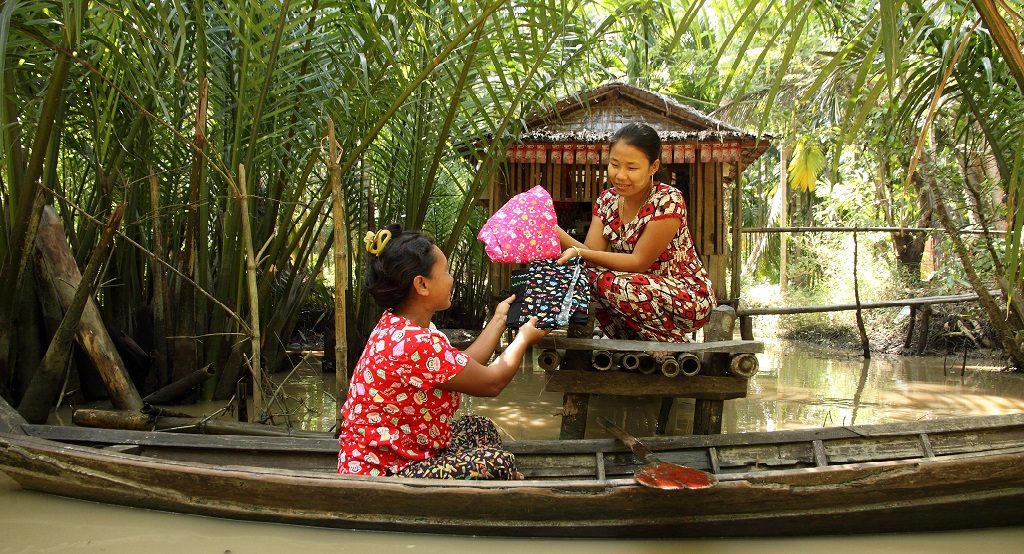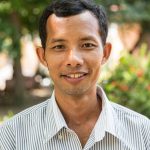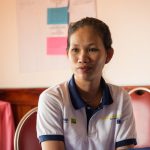
Asia 2016
In Asia, FCA had 52 staff members and 14 partners.

In Asia, FCA had 52 staff members and 14 partners.

“Many young people choose the profession their parents tell them to, because they do not know about their options. In the Career Counsellor training, I learned how to find information and connect with other networks. I get information to share with my students.”
Vichet Un, one of the first Cambodian Career Counsellors, trained by FCA in Battambang

“I’m extremely worried about the climate change, because it intensifies floods and drought. During the EU Aid Volunteers training, I have learned how communities can prepare for disasters and mitigate the damages.”
Sophy Kroeng, Community Facilitator, Prey Veng, Cambodia
In CAMBODIA, main achievements in right to education included finalising and publishing the Career Counselling and Guidance Manual, developing the national curriculum and training existing career counsellors to become Career Counselling and Guidance Trainers. The new curriculum for secondary education includes career guidance as a subject, a major success for FCA’s advocacy work.
When extreme weather conditions led to drought, FCA improved the capacity of community members to use irrigation systems, conserve water and establish plastic containers. New agricultural skills on vegetable growing and poultry farming improve living conditions in disaster prone communities.
FCA provided skills on Alternative Dispute Resolution to Community Mediation Committees. The work resulted in 726 successful conflict resolutions in communities.
Women’s groups were provided with skills to increase agricultural production, and producer groups were linked with wholesalers and retailers in the local market. FCA gave opportunities for 113 women and 36 men to establish businesses in communities. Many structures in target areas, such as women agriculture cooperatives, village banks, rice banks, cow banks, water groups, and community forestry, are on sustainable foundation and will remain in operation even when the projects phase out.
In MYANMAR, FCA organised a workshop where 39 youth peace activists from different ethnic groups got to discuss and share ideas. FCA contributed to improving access and quality of education of IDP’s in Myanmar, ensuring that students in 51 IDP camps and host communities in Northern Shan and Kachin got access to formal education. This particularly improved girls’ access to education. Teachers without Borders volunteers provided 54 teachers and 137 study guides with monthly support, and 68 study guides with a course on learner-centred teaching methods.
Efforts were made to improve the livelihoods of both IDPs and vulnerable communities by setting up 366 farmer groups, livelihood groups, women groups, youth groups, village development committees and camp management committees in local villages. FCA supported 97 savings and credit groups, ensuring that they functioned in line with self-set rules and regulations. Community-based Disaster Risk Reduction Management Committees were set up in 105 villages.
In NEPAL, semi-permanent classrooms were constructed to replace those destroyed in the 2015 earthquake. In addition, 10,657 earthquake-affected children received psychosocial support.
FCA introduced disaster preparedness at schools and developed a training manual on School Safety Practices on Emergency Preparedness and Response, which has also been adopted by other educational actors.
FCA addressed conflicts related to caste-based discrimination and conflicts between freed bonded labourers and their ex-masters by promoting and protecting human rights. Vocational training was provided for excluded groups of former bonded laborers.
In all three countries, Finn Church Aid actively participated in the EU Aid Volunteers initiative supporting local organisations in disaster risk reduction and resilience, emergency and preparedness plans and organisational development for volunteer management.